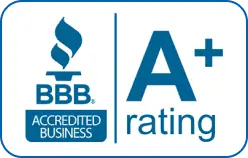A stock redemption or entity buy-sell agreement is a binding agreement that is implemented by the owner’s of a business to facilitate the orderly transition of a business interest in the event of the death, disability or retirement of a business owner. With a stock redemption plan, the company agrees to purchase the interest of a business owner in the event his or her business interest becomes available due to death, disability or retirement.
The entity agreement outlines the terms of the sale and establishes a formula for determining the actual sales price of the stock based on the company’s valuation. It also obligates the company to purchase the departing owner’s shares while at the same time mandating that the departing owner or her heirs sell their business interest back to the company.
How Exactly Does a Stock Redemption Plan Work?
Life insurance is the most convenient, effective and economical tool for funding a buy-sell plan. In a stock redemption plan funded by life insurance, each business owner is party to an agreement where the business purchases a life policy on the life of each business owner in an amount equaling their respective business interests.
The company is the premium payer, policy owner and beneficiary of each of the policies. In the event an owner dies, the company receives the proceeds of the life insurance policy and uses the proceeds to purchase the deceased owner’s business interest at a previously agreed upon price. The deceased owner’s estate receives instant liquidity at a fair market value for their business interest.
trusted by 5,000+ clients
Compare Business owners Rates
See rates and benefits tailored to your business needs.
Advantages of Entity Plans
A properly drafted entity buy-sell agreement that is funded with life insurance will have the following advantages:
- Creates a binding plan for the efficient transition of a business interest in the event of an unforeseen death.
- Easy to implement and cost effective.
- Creates an instant market for the business at a pre-arranged fair market value.
- Policy cash values can be listed as an asset on the company’s balance sheet. Cash values may be accessed by the company for other business uses.
- May establish a useable fair market value for the business for estate tax purposes.
- Only one life insurance policy is required for each business owner.
- Business owners are not responsible for premium payments.
- Provides liquidity for the deceased owner’s estate.
Disadvantages of Entity Plans
The disadvantages of entity buy-sell agreements include:
- There is no step-up in basis. If a business owner dies, each owner’s business interest increases but their basis remains the same.
- Life insurance may be the alternative minimum tax.
- Policy premiums are not deductible.
- Policy cash values are subject to the creditors of the business.
Stock Redemption Buy-Sell Agreements and Taxes¹
Tax issues with stock redemption plans include:
- Life insurance policy premiums are not tax deductible to the business.
- Any death benefit proceeds received by the business are generally received income tax free.
- If the business is properly valued, the value defined in the buy-sell may likely be binding when calculating the estate tax value for income and estate tax purposes.
- Once a deceased owner’s shares are purchased, the remaining owner’s do not receive an increase in their cost basis for tax purposes.
Effective use of a properly funded entity buy-sell agreement will assure an efficient transition for your business. Without an established funded plan, your business will experience significant costs if a fellow business owner dies unexpectedly. Why wait till it is too late to plan? Call MEG Financial today at (877) 583-3955 to discuss your business continuation concerns. A licensed insurance agent can personally review your circumstances and help you uncover potential options for your business.
¹ Neither MEG Financial nor any of its licensed agents provide legal or tax advice. Please consult your CPA or tax advisor for tax questions relating to your specific circumstances.














